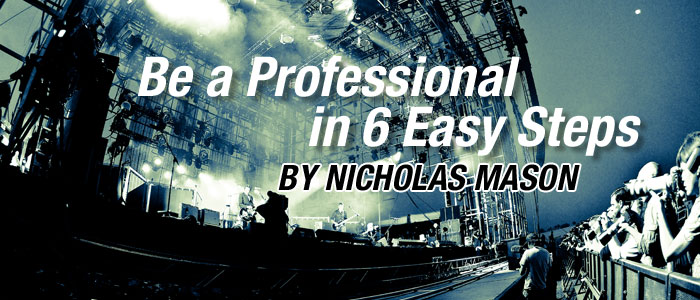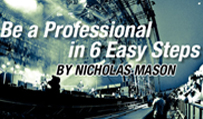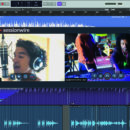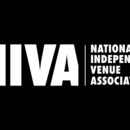
Being a professional doesn’t always mean that playing music is your day job. Yes, by definition being a pro is just that, but there are many ways to still be taken seriously in your music career while holding down a nine-to-five. In fact, many pros often have a little something on the side to keep the wheels moving once the bus stops. For some it’s out of necessity; today’s economy doesn’t allow top salaries for everyone in the biz. For others it keeps them grounded. I know a few guys you wouldn’t think need a day job, considering their career highlights; however, they jump into day jobs in between tours just to fuel a passion for something other than music.
The goal here is simple––to help you maintain a professional attitude and to be taken seriously, even though you may not be making millions by stepping out on stage.
1. Keep yourself grounded. Maintaining a professional attitude is the most important thing. In an art form such as music, you will need to invest a great amount of emotion and care into your craft. You will have to be open to suggestion and, sometimes, criticism. Keep your expectations realistic when entering new situations, be it working with a new artist or band for the first time, or even walking into a venue you haven’t played before. I’ve done shows that have lavish backstage accommodations, but it doesn’t mean I walk into every gig thinking I’ll get that. Keep yourself grounded!
2. Always move forward. Don’t let your ego get the best of you. After spending hours upon hours perfecting your craft and years building an impressive résumé, it can all be shattered by a single phrase: “It’s not working out” or “We are going in another direction.” It could also be no words at all, the simple lack of an email or phone call. Any way it comes, it hurts. Your ego’s first reaction will always be “F YOU!,” but you’d be better off taking responsibility for yourself, your actions and reaction, and move forward. Taking responsibility doesn’t mean that when someone criticizes you, you are in fact inferior or not good enough. It simply means that you can only move in one direction from that point. “Okay, that didn’t work out, what’s next?”
3. Be Reliable. Communication is a topic I love talking about. Let me just put it bluntly: DON’T BE A FLAKE! It’s really easy to ignore calls, texts and emails, or make plans and slowly drift off to never land without a word to others. It is also super unprofessional. Anyone who doesn’t take the time to get back to you isn’t serious. And it may seem old fashioned, but the phone is still the most professional way to conduct business. If you have the option, always call before sending an email or a text.
4. Set Yourself Up As A Business. You don’t need to run out and get a DBA, but it does mean you should establish the amenities common in today’s industry. The easiest is social media. It’s free and user-friendly and they can all be linked together. I can update one account from my phone and it automatically sends the same update to all of my other social media outlets.
An actual dot com website is also a must, though with the way social networking has moved the industry you can almost treat your website as a digital business card. Just offer some important information about yourself as an artist or band, nothing that needs to be constantly maintained. Again, through the magic of social media, all your website updates can be done remotely though other sites. I keep my Twitter feed on my home page for news updates, and all my other pages (music, videos, tour dates, etc.) are automatically updated with widgets from ReverbNation. Business cards may seem like something from a pre-smartphone era, but handing out a card is still a great way to personally connect with someone and show that you’re a pro.
5. Only Release Your Highest Quality Material. Content. Even with a web presence, business cards and veteran attitude, you’re going nowhere if the quality of your presentation is poor. Don’t ever publish songs that are only demo quality. Anything you put out for the public ear needs to be of the highest quality you can get. No, you don’t need to rent a lavish studio, but a basement recording made with only one mic isn’t going to cut it. The same goes for videos, photos and even your web layouts. It is true that with the access the general public has via social media, some less than flattering or amateur content can surface. I wouldn’t suggest you try to stop it, but you certainly don’t have to promote the shaky smartphone video a fan posted from your last gig. When someone hires me, and they ask me to learn music they have made available online, I expect it to be the same audio quality I hear on the radio.
6. Show Up Early, Not On Time. This may seem like common sense, but you would be surprised how often I run into situations like this due to musicians who are supposed to be professionals. If you walk into an audition, rehearsal, gig—basically any situation––take the time to really learn the material. If it’s something you aren’t provided enough prep time with, make notes and charts. Show up early, not on time. If rehearsal is at noon and you show up at noon, you’re late! Bring extras; I always carry a tool box of emergency trinkets. It might seem silly, but though I’m a drummer I have on numerous occasions lent guitar picks and cables to guys who forgot to bring their own. Be the most responsible person in the room.
NICHOLAS MASON is a Los Angeles-based session and touring drummer. His credits include Street Drum Corps, Nik West, Orianthi, Tuff, Corey Feldman, Shania Twain, Kevin Nealon, MasterChef, Glee, Showtime, FOX, Cartoon Network, ABC and more. For further information, visit http://nickmason.org.
Top photo by Jody Domingue












